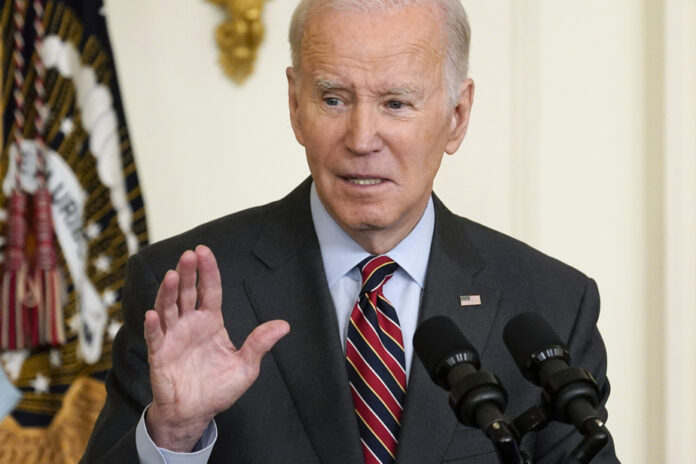(Washington) US President Joe Biden opens his “Democracy Summit” on Wednesday, which he considers to be at an “inflection point” in the face of authoritarianism, during which he will announce nearly $700 million to support the ” democratic renewal” around the world.
This second edition, co-organized by the United States, Costa Rica, the Netherlands, Zambia and South Korea—representing the five continents—comes in the middle of the war in Ukraine and against a backdrop of fears over the rise of China.
Democracies are also under pressure, from the United States to Israel for example, where a justice reform deeply divides the country and provoked massive demonstrations before Prime Minister Binyamin Netanyahu finally declared a “pause”.
“ They cannot continue on this path and I think I have made myself understood”, declared Tuesday evening the American president, specifying moreover that he had not planned to invite “ in the short term ” the Israeli Prime Minister to the White House.
Among the announcements expected at the summit, which begins at 6 a.m. local time (6 a.m. Eastern Time) and will be largely virtual, President Biden intends to invest $690 million to support “democratic renewal” around the world, the report told reporters a senior US official on condition of anonymity.
This envelope must be used to promote the holding of fair and free elections, the defense of human rights and freedom of the press, as well as the fight against corruption, he said, specifying that it will be added to the 400 million released at the first summit held under the auspices of President Biden in 2021.
The threats posed by new technologies should also occupy a large part of the debates, specified the American official, citing in particular spyware.
The leaders of each of the five host countries will chair a virtual plenary session at the summit on Wednesday, the US president’s session being devoted to “the response of democracies to global challenges” to which Ukrainian President Volodymyr Zelensky has been invited.
And on Thursday, the second day of the summit, events will take place in the capitals of each of the host countries.
No less than 121 countries from around the world have been invited to the summit, eight more than two years ago.
The numerous working sessions, mostly virtual, bring together leaders and civil society actors to discuss the challenges posed to democracy around the world, including in the technological field, at a time when Westerners accuse the TikTok network in particular of serve as a tool for Beijing.
If President Biden has kept his campaign promises on this summit and renewed the alliances of the United States after the Trump years, he has disappointed many observers by approaching leaders accused of authoritarian excesses and with disputed records in terms of rights. humans.
Biden traveled to Saudi Arabia and Egypt last year to attend COP27 and rekindled working ties with Turkish President Recep Tayyip Erdogan.
But none of these three countries was invited to participate in this high mass.
Among the other countries shunned, the Hungary of the nationalist leader Viktor Orban, as well as Singapore and Bangladesh.
The US State Department refused to talk about the criteria that determined whether or not certain countries were invited, while referring to a “ representative ” socio-economic and regional distribution.
“We are not trying to define which countries are or are not democracies,” a spokesperson said.
India, dubbed the largest democracy in the world, was invited, days after opposition leader Rahul Gandhi was banned from the Indian parliament.
Neighboring Pakistan declined the invitation, saying it wanted, according to a spokesperson, “ to work bilaterally ” with the host countries.
For Freedom House, a US government-backed democracy research group, 2022 has seen a decline in democracy around the world, according to its annual report.
South Korea has offered to host the third edition of this summit at an undetermined time, according to the American official.


















